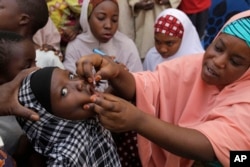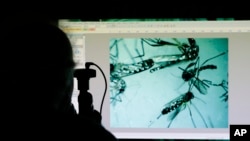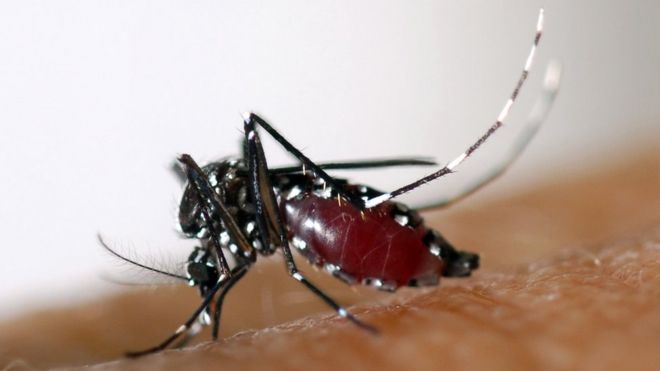Zika
While many people with Zika exhibit such mild symptoms that they don’t know they are infected, a surge of babies born with microcephaly proved that the virus is anything but harmless. Pregnant women with Zika are at risk of giving birth to babies with microcephaly, meaning they have abnormally small heads, which often signifies arrested brain development. The Zika virus originated in Uganda more than 60 years ago, and is transmitted by mosquitoes and through sex with an infected person. The virus recently emerged in Brazil, then surged north. There were confirmed cases in Florida, and health officials in Texas worry the virus might be spreading there.

Mothers with their children, who have microcephaly, await medical care at the Hospital Oswaldo Cruz, in Recife, Brazil
Dr. Anthony Costello, with the World Health Organization, said even one affected child has a big impact on community resources and a family's ability to cope. "It is a public health problem of huge concern for the world,” he said. “Sixty-nine countries have seen the Zika virus emerge in the last two years. We are talking about a virus that causes brain damage and potentially lifelong disability, which is a huge blow to families." Currently, prevention is key. Women are advised to avoid travel to areas where the virus is spreading, to guard against mosquito bites and to delay pregnancy. There is no vaccine against Zika, but one could be available in 2018.
Polio

Health official administers a polio vaccine to a child in Kawo Kano, Nigeria.
In Nigeria, the polio virus re-emerged in the violence-wracked northern part of the country, where it's hard to ensure that every child is vaccinated. Three children were diagnosed with polio just as Nigeria was thought to be approaching polio-free status. The virus also exists in another conflict zone: along the border of Pakistan and Afghanistan. Those behind the vaccination effort say they are determined to eliminate the disease. Polio infections have decreased by 99 percent since 1988, from about 350,000 cases then to less than three dozen in 2016.
HIV/AIDS
In the beginning of December, Dr. Anthony Fauci at the National Institutes of Health announced the start of a major trial of an experimental vaccine against the AIDS virus. "An HIV vaccine is not going to be easy,” he said. “We may not even know if we're going to get a vaccine."

Activists march in Durban, South Africa, July 18, 2016, at the start of the 21st World Aids Conference.
However, Fauci described the advances in AIDS treatment as nothing short of spectacular. "Today, the combinations of therapies we have for individuals — for someone who is in their 20s and gets infected and comes in and gets on a combination of drugs — you could predict that they could live an additional 50 years,” he said. “That is one of the most extraordinary advances in the transition from basic research to an applicable intervention in any field of medicine." If an effective vaccine is found, it could mean the end for a virus that has infected more than 70 million people and killed 35 million over the last half-century.
http://www.voanews.com/a/three-virus...n/3645763.html
The microcephaly outbreak in Brazil, which coincided with the spread of the Zika virus, continues to stun the world, even months after the incident was first reported.Pregnant women all over the world have been advised to take caution. The Zika virus infection has been linked to newborn babies with the birth defect microcephaly. This is a congenital condition in which babies are born with unusually tiny heads.


 The Science, Health, and Technology Room
The Science, Health, and Technology Room

 Reply With Quote
Reply With Quote
 A baby's head is measured by a neurologist at the Mestre Vitalino Hospital in Caruaru, Pernambuco state, Brazil
A baby's head is measured by a neurologist at the Mestre Vitalino Hospital in Caruaru, Pernambuco state, Brazil Microcephaly, illustrated on CDC website
Microcephaly, illustrated on CDC website Dr. Aileen Marty, professor of Infectious Diseases at Florida International University, explains the use of insect repellent towelettes in Miami. There have been 238 cases of Zika reported in Florida.
Dr. Aileen Marty, professor of Infectious Diseases at Florida International University, explains the use of insect repellent towelettes in Miami. There have been 238 cases of Zika reported in Florida.









